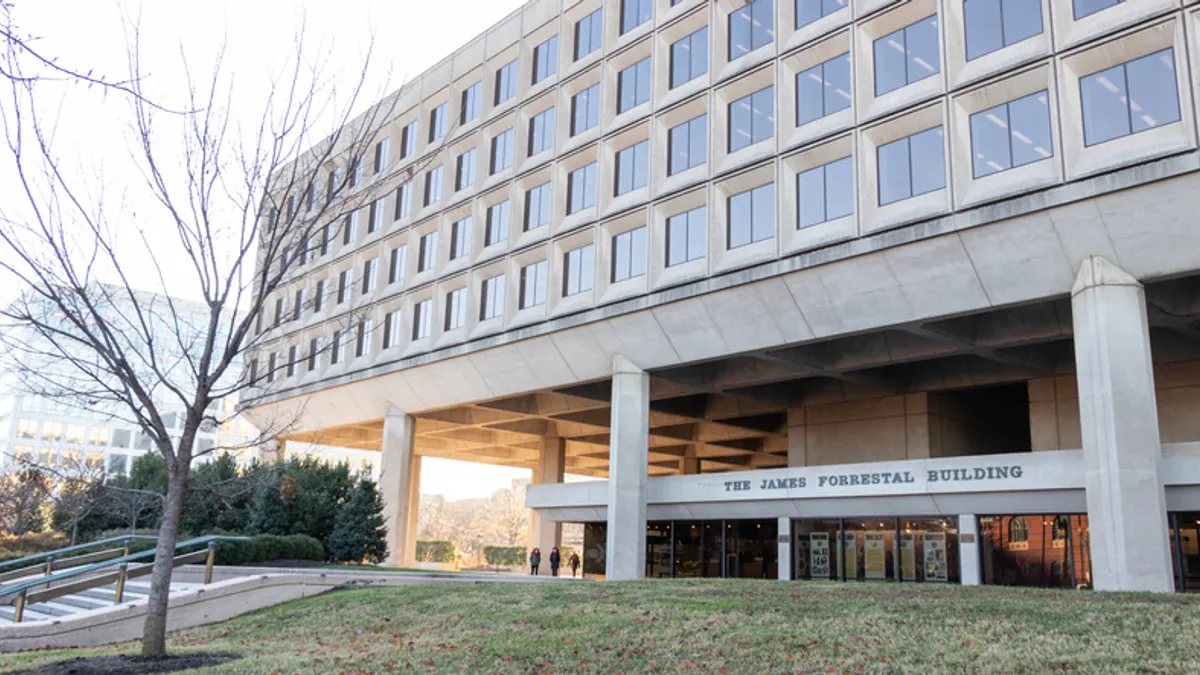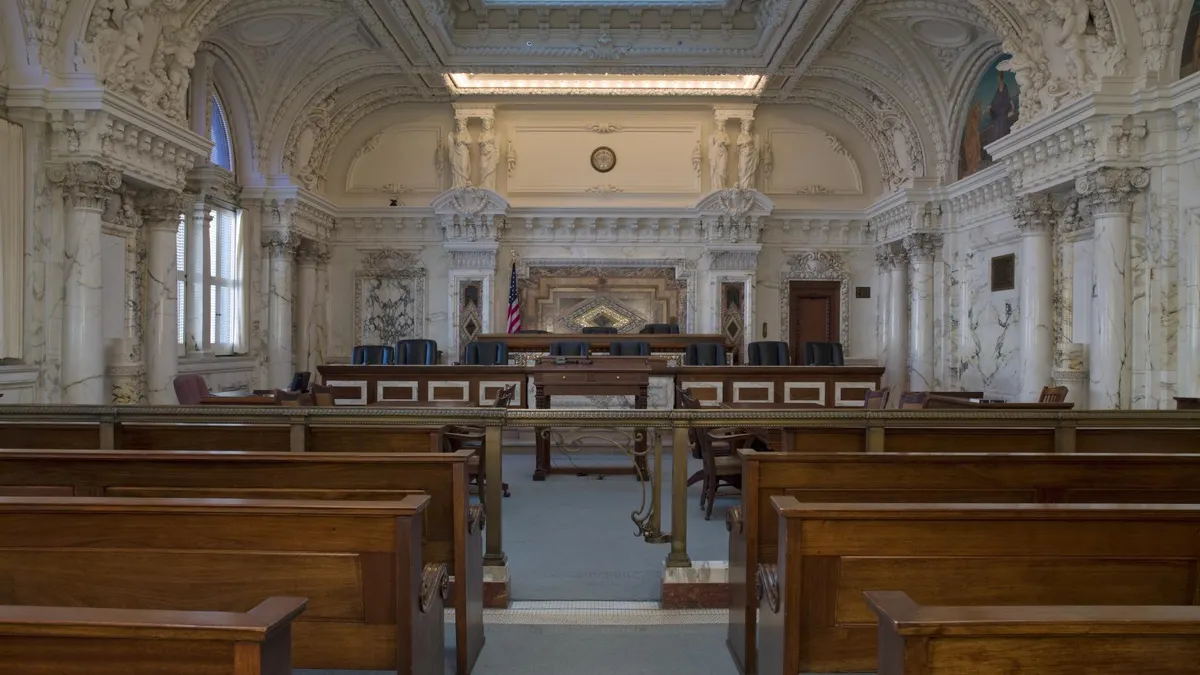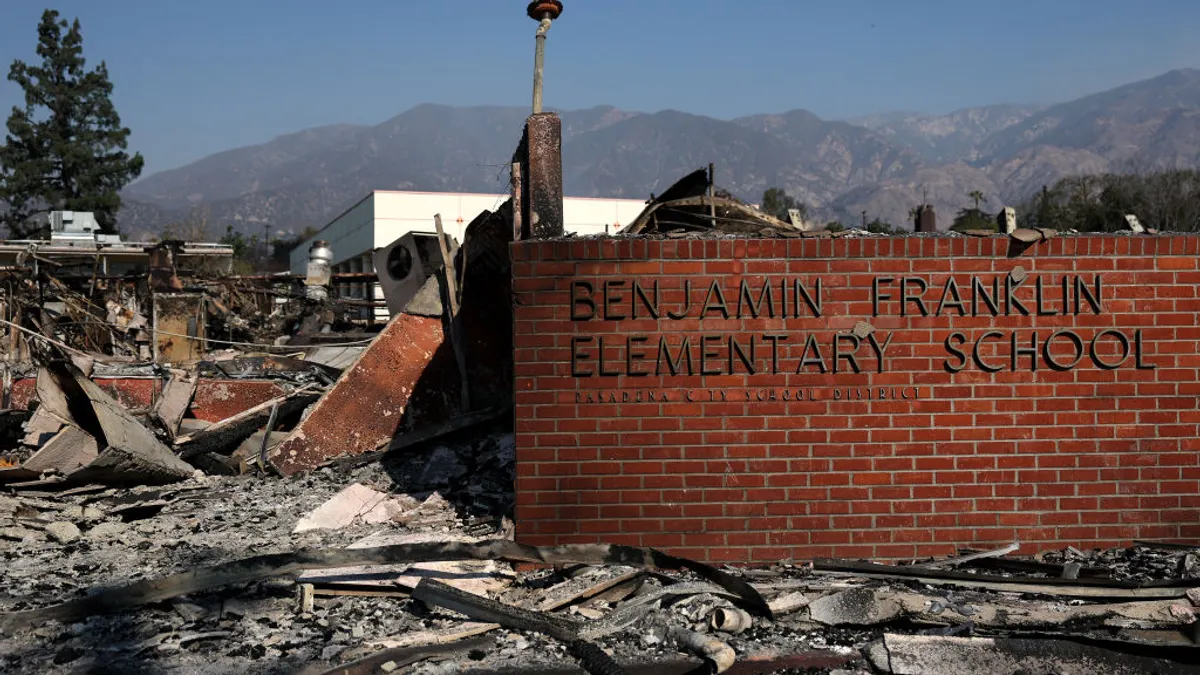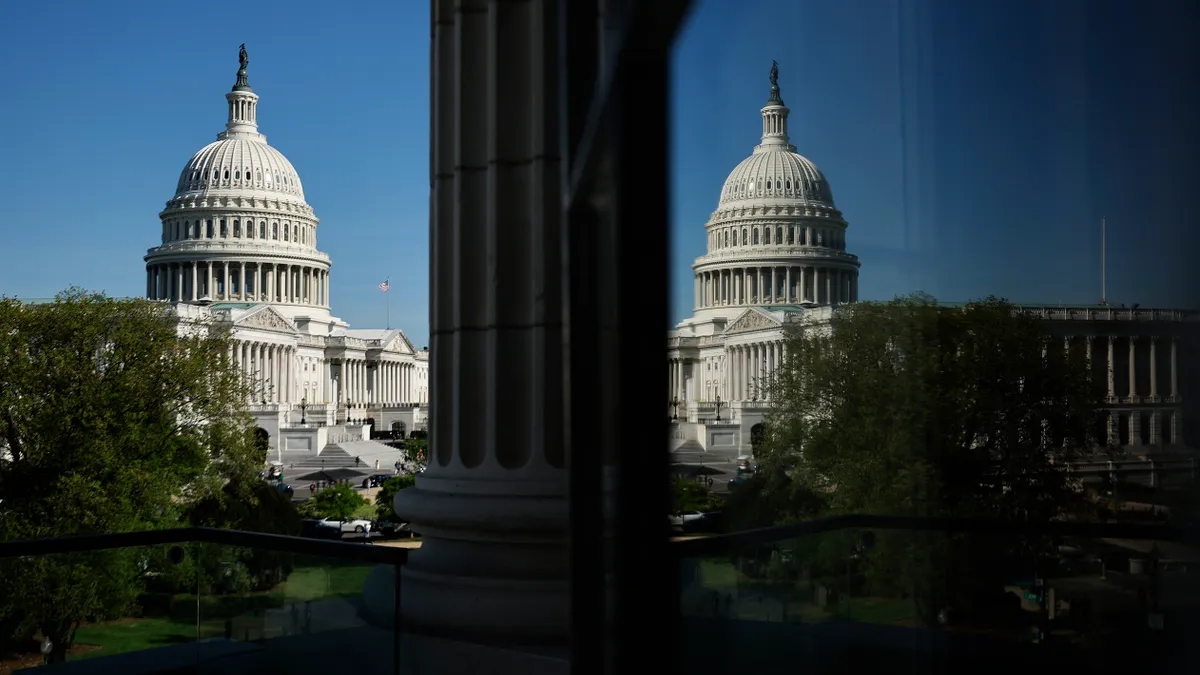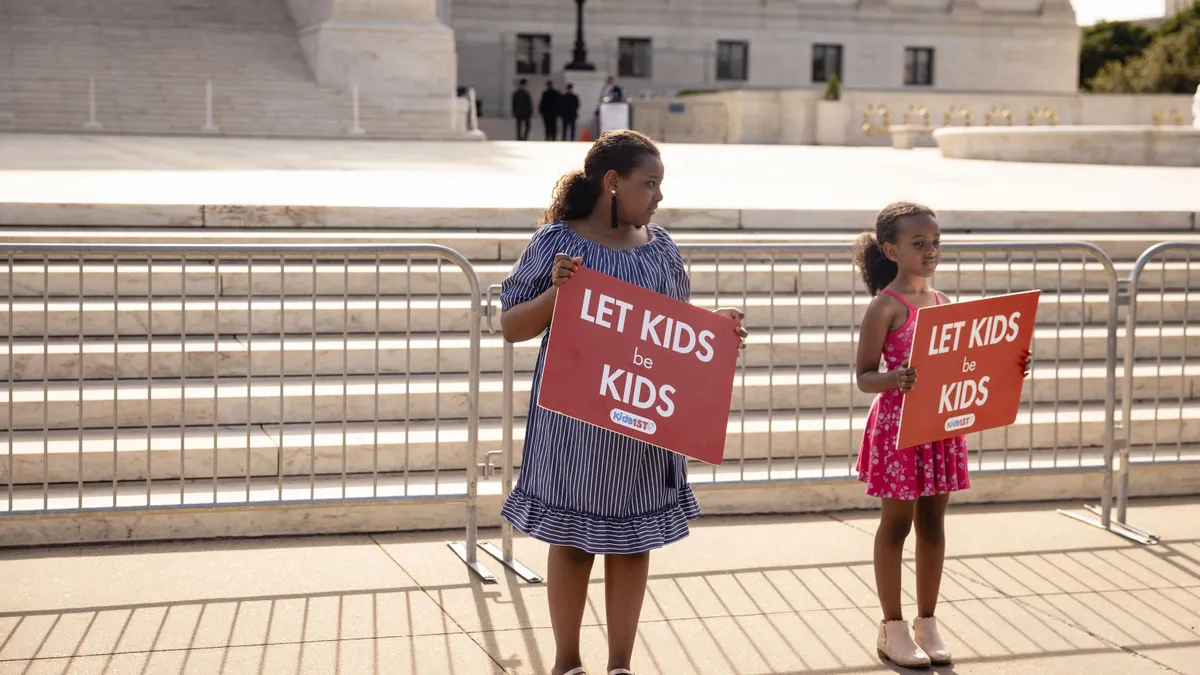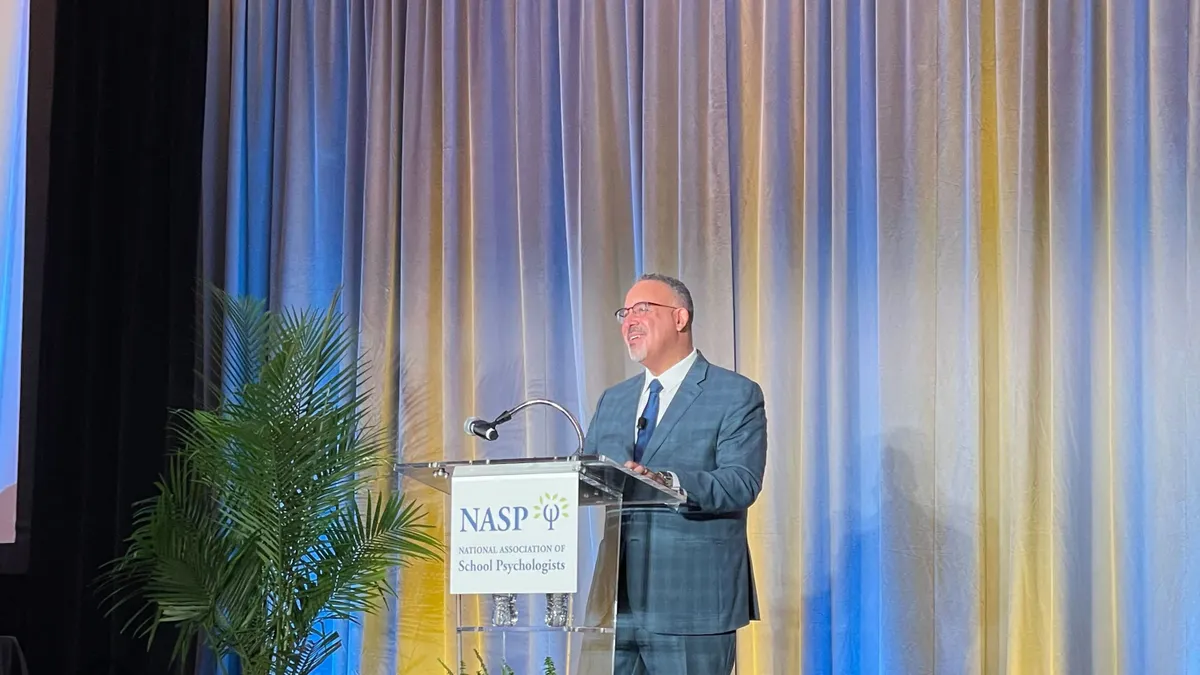The Trump administration is tapping agencies other than the U.S. Department of Education to implement its agenda in schools, sometimes circumventing typical rulemaking procedures that would allow districts months to give feedback on and prepare for policy changes before they roll out.
The use of other agencies to set or enforce education policy marks a significant shift from typical K-12 policymaking, some education policy experts say.
"This is a paradigm shift on the part of how the federal government articulates and connects some of these tools to their education priorities," said Kenneth Wong, a professor of education policy at Brown University. "So I think going forward, we might be seeing broader use of this wider range of policy tools in the area of education policy changes."
This month, for example, a policy change from the U.S. Department of Energy could take effect that would undo some students' protections related to sex discrimination under Title IX, disability discrimination under Section 504 and racial discrimination under Title VI.
The changes would only apply to schools receiving Energy Department funds, as opposed to public schools nationwide — which would have been the case had the rules come from the Education Department. The Energy Department distributed just over $160 million to 28 schools in fiscal year 2025, according to department spokesperson Ben Dietderich. The agency also provides over $2.5 billion annually to more than 300 colleges and universities to fund research.
As a result of the quietly proposed policy changes schools receiving Energy Department grants would no longer, among other things:
- Be required to facilitate noncontact sports team tryouts for girls if there is no equivalent girls' team. For example, if a school had a boys’ baseball team but no girls’ softball team, girls would no longer be guaranteed the opportunity to try out for a spot on the boys’ baseball team.
- Be permitted to proactively "overcome the effects of conditions that resulted in limited participation therein by persons of a particular sex." This would remove protections that allow schools to have gender-conscious after-school or college programs to provide women and girls opportunities they have historically been denied, such as in STEM fields and technical training, according to Shiwali Patel, senior director of Safe and Inclusive Schools at National Women’s Law Center and a Title IX attorney.
- Be required to prevent systemic racial discrimination that may result from seemingly neutral policies, as a result of the department rescinding guardrails protecting against policies that cause a "disparate impact" on underserved students. Disparate impact investigations have previously addressed issues such as Black students being disciplined at higher rates than students of other races.
The policy changes were issued through a process called direct final rulemaking, which allows an agency to issue a rule without going through the rulemaking process twice to incorporate changes based on public feedback and publish a final version. The expedited process is usually used for noncontroversial changes and when an agency does not expect significant pushback.
The rules are to take effect July 15 as long as no “significant adverse comments" were received by June 16. Dietderich did not respond as to whether the agency received significant adverse comments.
However, a review of some publicly available comments show that the direct final rules — posted May 16 — have been controversial, with multiple civil rights organizations explicitly telling the Energy Department they are submitting "significant, adverse" comments for its review.
Other agencies launch civil rights investigations and enforcement
The Energy Department situation isn't the first time the Trump administration has deployed agencies beyond the Education Department to set or enforce education policy. In fact, the administration has used the departments of Justice, Agriculture, and Health and Human Services over the past few months to investigate sex and race discrimination at schools and enforce compliance.
The administration notably used these agencies in an unprecedented investigation into the Maine Department of Education, spurred by a public disagreement between President Donald Trump and Maine Gov. Janet Mills, a Democrat, over the state's athletic policy allowing transgender athletes on girls' and women's sports teams.
That dispute kicked off a string of Title IX investigations by several federal agencies that provide funds to Maine.
They included a four-day probe launched by HHS. And because HHS rather than the Education Department conducted the probe, it didn't have to follow the standards spelled out in the Education Department's Office for Civil Rights case processing manual. That manual ensures the Education Department conducts investigations according to certain timelines, for example, allowing up to 90 calendar days for negotiations to take place and 10 days for schools or states to sign onto a resolution agreement.
In addition, the U.S. Department of Agriculture froze funds to some of the state's schools over the Maine Department of Education’s alleged Title IX violations.
"USDA, alongside other federal agencies, will continue to pause and, where appropriate, terminate categories of education programming in Maine if these Title IX violations are not resolved to the satisfaction of the Federal Government," said an April 2 letter from Agriculture Secretary Brooke Rollins to Mills.
A court order eventually overturned the USDA funding freeze as part of an agreement struck in May between Maine and the USDA.
These Title IX enforcement actions through HHS, USDA and the Education Department culminated in the Trump administration referring the cases to the Department of Justice, which announced a civil lawsuit against Maine over Title IX compliance in April.
Since then, the administration has used these agencies to initiate and enforce other investigations into schools and states — including over antisemitism under Title VI, — in states like California and Minnesota.
Sonja Trainor, executive director of the National School Attorneys Association, acknowledged that federal agencies have been setting and enforcing education policy outside of formal legal channels for many years.
But "what's different now is the speed with which policy priorities are materializing into funding terminations and direct enforcement," Trainor said in an email. "Of particular concern, of course, is funding and the prospect of being sued from many possible angles when policy shifts quickly."
Wong said the Energy Department policy changes potentially taking effect next week could serve as a test case, as the Maine case did for civil rights investigations.
That means if the Energy Department's changes went uncontested by districts concerning significant adverse effects, and thus go through in about 60 days as is usual for direct final rules, other agencies will also try setting education policy this way, Wong said.
"Basically every single school, in practically every single school district, has some grants from one of the many agencies in the federal government," said Wong.
So while the immediate impact of the Energy Department changes would be limited to those that receive its funding, ultimately many more schools could be affected.
Policies related to diversity, equity and inclusion and Title IX are particularly susceptible here, said Wong. "I think there's a whole bunch of standards that the current secretary of education is redefining, and so these other agencies are likely to provide a vehicle to kind of challenge the practice in the local school systems."'


